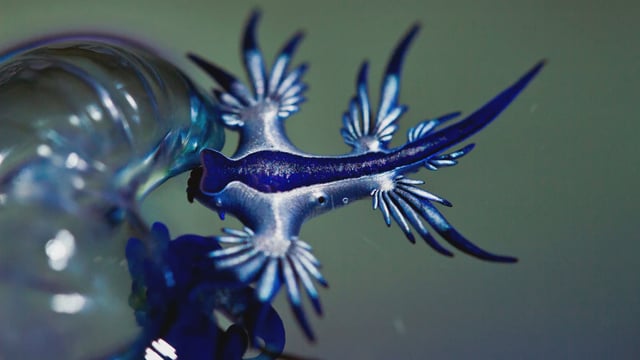Overview
- Following red-flag closures triggered by two specimens at Guardamar del Segura on Aug. 20–21, authorities reopened most areas and lowered warnings to yellow by Aug. 26 with ongoing patrols and signage.
- Sightings were reported along the Costa Blanca and in Valencia province, Cádiz and Lanzarote, and researchers documented a rare encounter off Mallorca earlier this summer.
- The small pelagic nudibranch Glaucus atlanticus stores stinging cells from prey such as the Portuguese man o’ war, and contact can cause painful but typically mild reactions.
- Scientists point to winds, storms and currents moving surface-drifting animals shoreward and say any climate link remains unproven and requires more data.
- Officials advise not to touch the animals, to rinse stings with seawater and seek medical help for severe or allergic symptoms, and experts encourage reporting sightings for monitoring.
